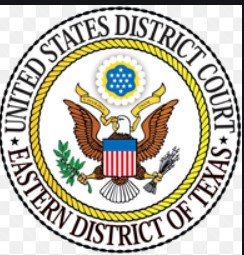Louisiana Woman Indicted in $4.8M Elder Fraud Scheme.
The Eastern District of Texas’ U.S. Attorney Stephen J. Cox said a federal grand jury indicted Monica Ruiz, 44, of Shreveport for her role in an elder fraud scheme.
According to the indictment, Ruiz enlisted various false and fraudulent pretenses, representations, and promises in a scheme to defraud an elderly victim from Bullard, Texas. Among the multiple misrepresentations, Ruiz made to obtain money from the victim were the following:
– That Ruiz had been in a coma;
– That Ruiz had brain surgery;
– That Ruiz was falsely arrested and imprisoned;
– That Ruiz had bribed a judge and prosecutor;
– That Ruiz’s son died in a car accident in Pennsylvania;
– That Ruiz was in a car accident;
– That Ruiz had a kidney transplant;
– That Ruiz’s daughter was committed to a mental institution;
– Authorities had incarcerated Ruiz, and
– That Ruiz’s grandmother died.
At times, Ruiz impersonated other people in communications with the victim, and at other times, she created and used false personas in communications with the victim. Throughout her scheme, Ruiz obtained more than $4.850 million from the victim.
If convicted, Ruiz faces up to 20 years in federal prison. A grand jury indictment is not evidence of guilt. A defendant is presumed innocent until proven guilty beyond a reasonable doubt in a court of law.
In October 2017, President Trump signed the bipartisan Elder Abuse Prevention and Prosecution Act (EAPPA) into law. The EAPPA’s purpose is to increase the federal government’s focus on preventing elder abuse and exploitation. Subsequently, the Department of Justice launched the Elder Justice Initiative (EJI). Through the EJI, the Department has participated in hundreds of criminal and civil enforcement actions involving misconduct that targeted vulnerable seniors.
This past March, the Department announced the most massive elder fraud enforcement action in American history, charging more than 400 defendants in a nationwide sweep. The Department has likewise conducted hundreds of training and outreach sessions across the country. The EJI website contains useful information, including educational resources about prevalent financial scams so you can guard against them.
In August, the Eastern District of Texas announced plans to develop a new initiative, in partnership with law enforcement, to increase enforcement efforts to combat transnational elder fraud schemes and their extensive networks of associates and money mules who launder the stolen funds.
If you or someone you know is age 60 or older and has been a victim of financial fraud, help is standing by at the National Elder Fraud Hotline: 1-833-FRAUD-11 (1-833-372-8311). This U.S. Department of Justice hotline, managed by the Office for Victims of Crime, is staffed by experienced professionals who provide personalized support to callers by assessing the victim’s needs and identifying appropriate next steps. Case managers will identify relevant reporting agencies, provide information to callers to assist them in reporting, connect callers directly with good agencies, and provide resources and referrals on a case-by-case basis.
Reporting is the first step. Reporting can help authorities identify those who commit fraud, and reporting certain financial losses due to fraud as soon as possible can increase the likelihood of recovering losses. The hotline is staffed seven days a week from 5:00 am to 10:00 pm Central Standard Time. English, Spanish, and other languages are available.
The U.S. Secret Service, with the assistance of the Tyler Police Department and the Louisiana State Police-Gaming Enforcement Division, investigated this case and is being prosecuted by Assistant U.S. Attorney Nathaniel C. Kummerfeld.
North Texas Financial Advisor Who is Alleged to Have Pocketed Over a Million Dollars in Investment Funds Appears in Court.
The Eastern District of Texas U.S. Attorney Stephen J. Cox announced that a federal grand jury indicted Keith Todd Ashley, 48, of Allen. The charge is six counts of wire fraud. Ashley was the owner and chief executive officer of KBKK, LLC, who devised and executed a scheme to defraud investors of approximately $1.1 million. Specifically, Ashley would solicit money from investors for purported investments that he represented were without risk. In reality, Ashley was diverting these investment funds for his use.
According to the indictment, from December 23, 2013, through May 14, 2020, Ashley, as owner and chief executive officer of KBKK, LLC, devised and executed a scheme to defraud investors of approximately $1.1 million. Specifically, Ashley would solicit money from investors for purported investments that he represented were without risk. In reality, Ashley was diverting these investment funds for his use.
If convicted, Ashley faces up to 20 years in federal prison. The United States is also seeking forfeiture for $1.143 million.
The Federal Bureau of Investigation and the Carrollton Police Department. are investigating the case, and Assistant U.S. Attorney Heather Rattan is prosecuting.
A grand jury indictment is not evidence of guilt. All defendants are presumed innocent until proven guilty beyond a reasonable doubt in a court of law.








 EastTexasRadio.com Powered by Ten Stations
EastTexasRadio.com Powered by Ten Stations






